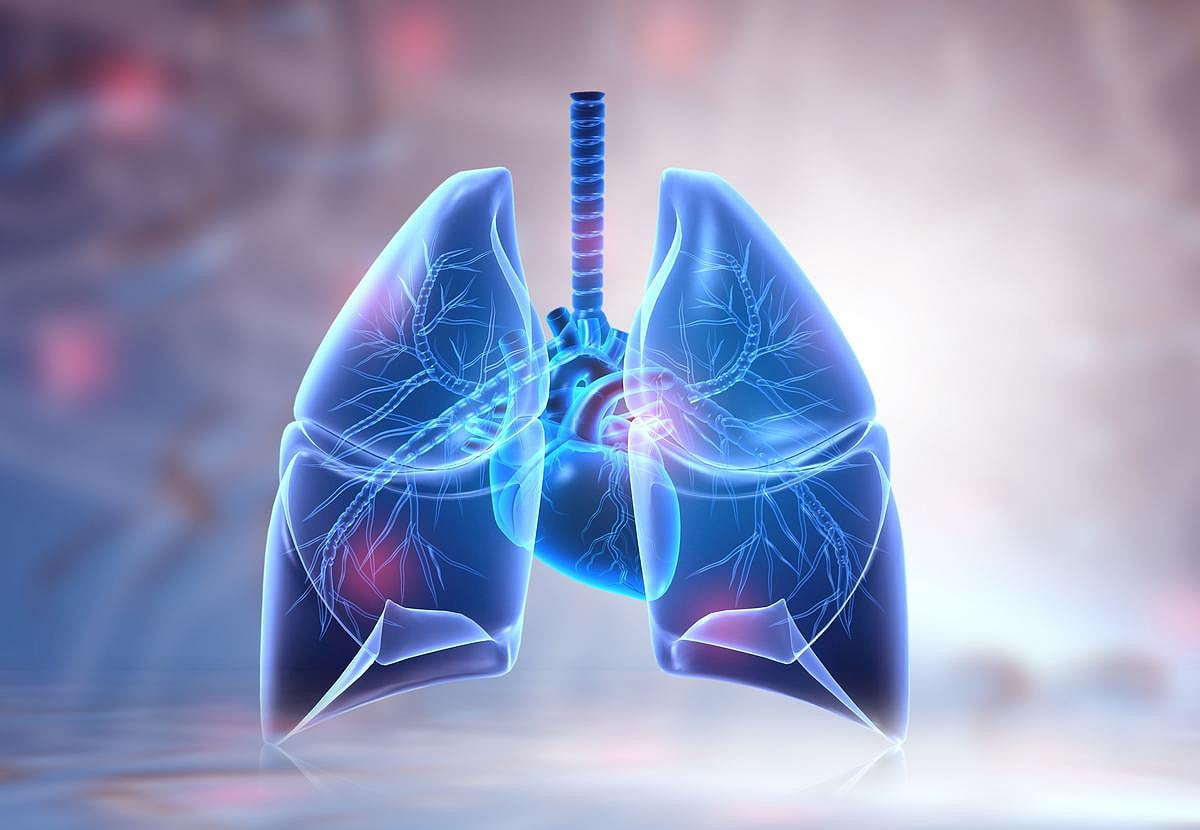Annualized rate of pulmonary exacerbations lower in 10-mg and 25-mg brensocatib groups versus placebo
By Elana Gotkine HealthDay Reporter
THURSDAY, April 24, 2025 (HealthDay News) — For patients with bronchiectasis, brensocatib leads to a lower annualized rate of pulmonary exacerbations, according to a study published in the April 24 issue of the New England Journal of Medicine.
James D. Chalmers, M.B., Ch.B., Ph.D., from the University of Dundee in the United Kingdom, and colleagues conducted a phase 3, double-blind trial involving patients with bronchiectasis who were randomly assigned to receive brensocatib (10 mg or 25 mg once per day) or placebo (1:1:1 ratio for adults; 2:2:1 ratio for adolescents).
A total of 1,680 adults and 41 adolescents were randomly assigned to brensocatib or placebo. The researchers found that the annualized rate of pulmonary exacerbations was 1.02, 1.04, and 1.29 in the 10-mg brensocatib group, 25-mg brensocatib group, and placebo group, respectively (rate ratios, 0.79 and 0.81 with the 10-mg and 25-mg brensocatib doses, respectively, versus placebo). For the time to first exacerbation, the hazard ratio was 0.81 and 0.83 with the 10-mg and 25-mg doses, respectively. At week 52, 48.5 percent of patients in each brensocatib group remained exacerbation-free, compared with 40.3 percent in the placebo group (rate ratios, 1.20 and 1.18 with the 10-mg and 25-mg doses, respectively). Forced expiratory volume in one second had decreased by 50, 24, and 62 mL with the 10-mg dose, 25-mg dose, and placebo, respectively, at week 52, with the reduction significant for the 25-mg dose. The incidence of adverse events was similar across groups. There was a higher incidence of hyperkeratosis with brensocatib.
“These results show that inhibiting dipeptidyl peptidase 1 with brensocatib — and thereby targeting neutrophilic inflammation — results in meaningful improvements in outcomes in patients with bronchiectasis,” the authors write.
The study was funded by Insmed, which is developing brensocatib.
Editorial (subscription or payment may be required)
Copyright © 2025 HealthDay. All rights reserved.








